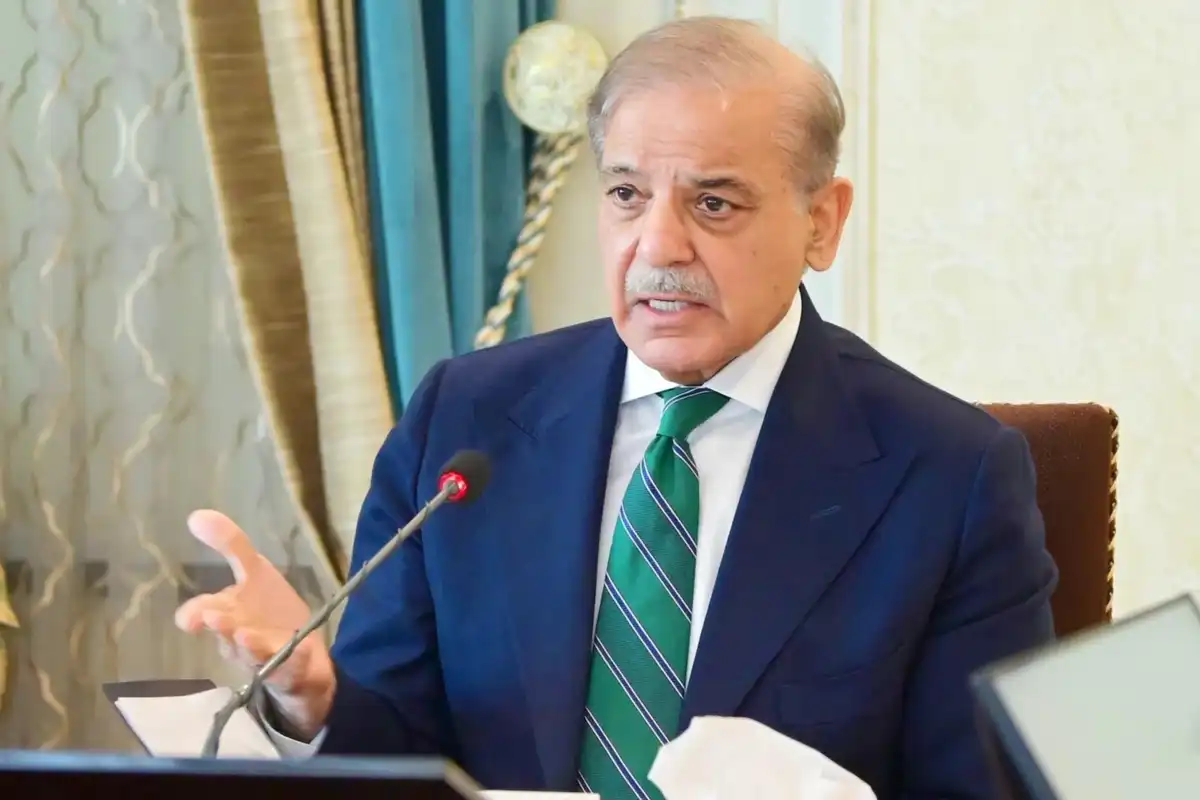Pakistan PM rescinds earlier order, summons emergency meeting over canal dispute today
Urgency likely stems from ongoing protests on Pakistan’s National Highway, paralyzing movement of goods from Sindh to Punjab and beyond

Javed Hussain
Correspondent
I have almost 20 years of experience in print, radio, and TV media. I started my career with "Daily Jang" after which I got the opportunity to work in FM 103, Radio Pakistan, News One, Ab Tak News, Dawn News TV, Dunya News, 92 News and regional channels Rohi TV, Apna Channel and Sach TV where I worked and gained experience in different areas of all three mediums. My journey from reporting to news anchor in these organisations was excellent. Now, I am working as a correspondent with Nukta in Islamabad, where I get the opportunity of in-depth journalism and storytelling while I am now covering parliamentary affairs, politics, and technology.

Shehbaz Sharif set to chair a high-level emergency CCI meeting at the Prime Minister’s House.
File/PID
Council of Common Interests meeting brought forward to April 28 from May 2
Canal dispute triggers major protests, closes major highway
Pakistan’s Prime Minister Shehbaz Sharif is set to chair a high-level emergency meeting on Monday to address the escalating dispute over water sharing between the provinces of Punjab and Sindh.
The emergency session of the Council of Common Interests (CCI) will take place at 7 p.m. local time at the Prime Minister’s House, according to an official statement. The CCI, Pakistan’s top constitutional forum for resolving federal-provincial disputes, will focus on allegations of canal diversions from the Indus River and efforts to build provincial consensus.
The urgency likely stems from ongoing protests on Pakistan’s National Highway, which have paralyzed the movement of goods from Sindh to Punjab and beyond.
Protesters have remained on the streets despite repeated assurances from the country's top leaders that no new canals will be constructed on the Indus River without unanimous provincial agreement.
Political parties find 'way out'
The dispute saw a rift between coalition partners: Sharif’s Pakistan Muslim League-Nawaz (PML-N), which governs Punjab, and the Pakistan People's Party (PPP) that controls Sindh.
However, matters improved last week after PPP Chairman Bilawal Bhutto Zardari met with Sharif at the latter's request to press for a CCI meeting on the issue.
Following the meeting, Sharif agreed to convene the meeting and promised to hold consultations on the canal projects.
Following the meeting, Prime Minister Sharif publicly assured that the federal government would not move forward with any controversial canal projects without the consensus of all provinces.
Amid rising regional tensions, especially after the Kashmir tourist attack and India’s recent action suspending the Indus Waters Treaty, Sharif emphasized the need for provincial unity and strict adherence to constitutional processes.
Originally scheduled for May 2, the CCI meeting was brought forward to April 28 at the request of the Sindh government, Sindh Information Minister Sharjeel Inam Memon confirmed.
Sindh Chief Minister Syed Murad Ali Shah will attend the meeting to represent the province’s position.
Controversial canal projects
The federal government’s plans involve the construction of six new canals, five on the Indus River and one on the Sutlej River.
These include the Rainee Canal and Thar Canal in Sindh, the Kacchi Canal in Balochistan, the Chashma Right Bank Canal in Khyber Pakhtunkhwa, and the Cholistan Canal and Greater Thal Canal in Punjab.
Three of these projects—the Rainee, Kacchi, and Chashma Right Bank canals—have been under construction since before General Pervez Musharraf’s era (early 2000s). They have drawn criticism from Sindh’s water experts for decades.
These projects are now part of the Pakistan Green Initiative, a broader program aimed at expanding corporate farming across the country.
Under the 1991 Indus River System Water Accord, any new irrigation project requires the approval of the Indus River System Authority (IRSA). Last January, IRSA issued a water supply certificate for the construction of the Cholistan Canal, but Sindh’s IRSA representative, Ehsan Laghari, opposed the decision, arguing it would harm Sindh’s water rights.
Punjab maintains that the Cholistan Canal will be fed from its own water share. However, Sindh has expressed concern that Punjab has not specified which areas will receive reduced water allocations to compensate.
This uncertainty has fueled fears in Sindh that water meant for their province could be diverted to irrigate new lands in Cholistan.
Experts from Sindh warn that the construction of the Cholistan Canal would further reduce the flow of freshwater to the sea, threatening devastating consequences for the province’s delta ecosystem and coastal communities.







Comments
See what people are discussing